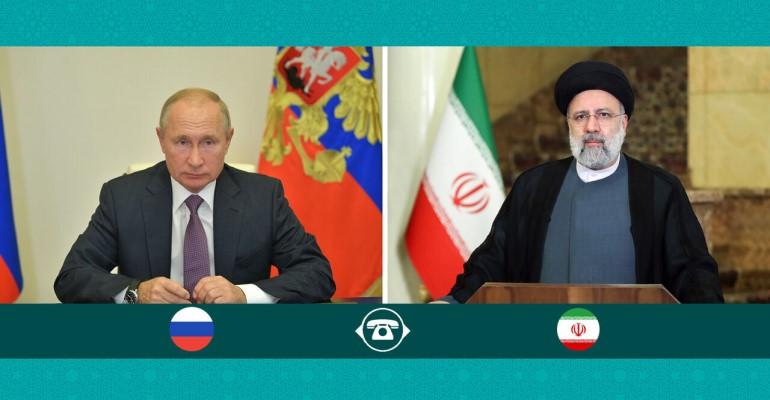Iran's Financial Tribune publication reported this week that trade between Russia and Iran in the January-October period surpassed that of full-year 2021, totalling $4 billion, according to Izvestia, which cited figures provided by the Federal Customs Service (FCS) of Russia.
Russian exports to Iran increased by 27%, while imports rose 10%, the deputy head of FCS, Vladimir Ivin, told the Russian publication.
President of the Russian Chamber of Commerce and Industry Sergey Katyrin told Izvestia that mutual trade increased due to Western sanctions against Russia and the related interruptions in traditional ties.
“Iran is of special interest: First, it is a logistic bridge in trade with the Middle East, South and Southeastern Asia, and second, the state has a unique experience of surviving amid sanctions for many years,” he said.
The Iranian newspaper also said the likelihood of seaborne Russia-Iran trade via the Caspian Sea was also increasing, and the two governments have announced plans to conduct trade between Russia’s Astrakhan and Iran’s Bandar Anzali ports.
According to the Tehran Times, an MoU on port cooperation between Bandar Anzali and Astrakhan was signed in September. Governor General of Astrakhan province Anatoly Guzhvin recently led a Russian delegation on a visit to Bandar Anzali Port and associated fishery facilities, the newspaper said.
“Earlier this year, Russia and Iran had agreed to trade via Kazakhstan and Turkmenistan, but the sea route is preferable because fewer political and security issues are involved and because Iran is now a member of the Shanghai Cooperation Council and thus is tied more closely to Russia,” the Financial Tribune said.
The new Caspian Sea route is also seen as a counterweight to Turkey’s presence and ambitions in the region, as it challenges the networks Ankara and the West have set up to undermine or even exclude Russian influence there, the publication said.
Listen to the Seatrade Maritime Podcast on the outlook for the tanker market in 2023
In 2019, the Eurasian Economic Union (EEU), which counts Armenia, Belarus, Kazakhstan, Kyrgyzstan, and Russia as its members, signed a temporary free trade agreement with Iran.
“In early 2022, a protocol on its extension was signed. The talks on a full-fledged agreement have been launched, with four rounds of consultations held," Katyrin was quoted as saying.
The deal was said to involve trade in more than 7,500 types of commodities.
In November, Iranian president, Ebrahim Raisi, welcomed Russia’s interest in strengthening economic and trade cooperation with the Islamic Republic, during a call with counterpart, Vladimir Putin.
Putin said the so-called South-North Corridor would serve as a good transit route for global trade as it greatly reduced transit times and costs.
Copyright © 2024. All rights reserved. Seatrade, a trading name of Informa Markets (UK) Limited.
Add Seatrade Maritime News to your Google News feed.  |

